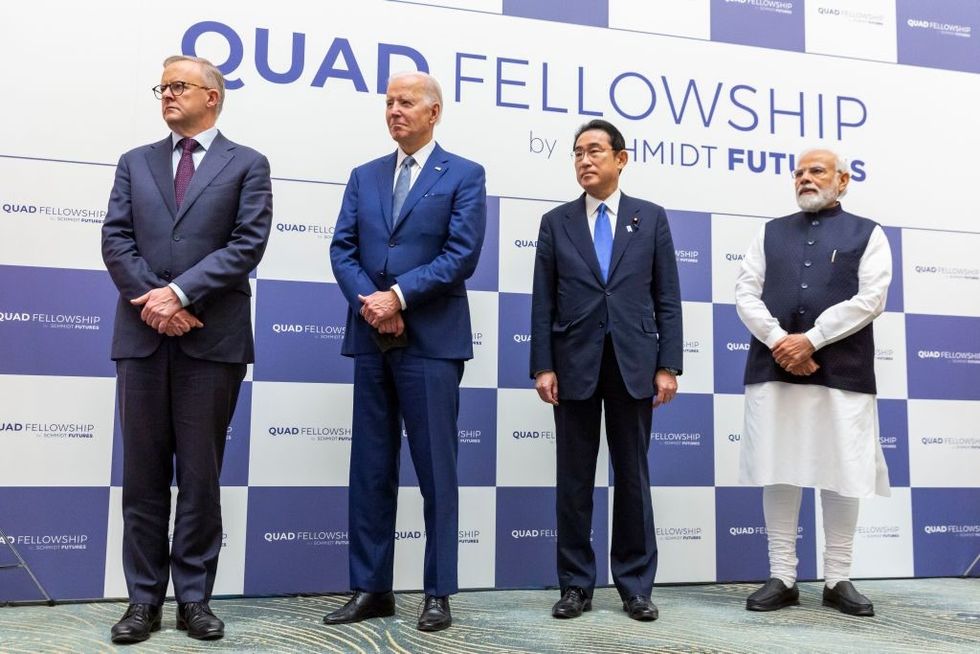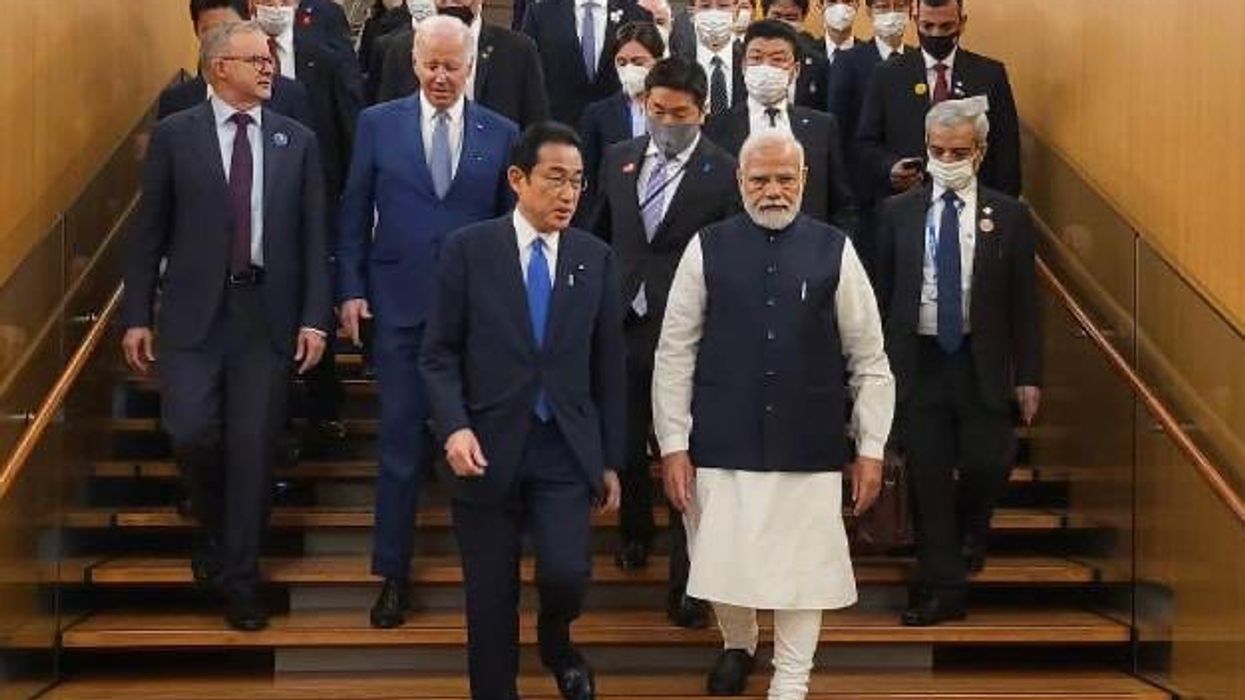THE QUAD leaders have launched a slew of new initiatives, ranging from maritime security to healthcare, to benefit the alliance partners and the wider Indo-Pacific. During their Tokyo summit of the grouping, the member states - India, the US, Japan and Australia - vowed to deepen their long-term cooperation.
The scope of the alliance has become broader, and the format has become effective, Indian prime minister Narendra Modi said in the presence of his counterparts Fumio Kishida of Japan and Anthony Albanese of Australia and US president Joe Biden. Here are the major decisions taken during the summit.
1. Quad pledges $50 billion to counter China
The Quad leaders announced a new measure that allows the partner countries to fully monitor the regional waters and announced more than $50 billion (£40 bn) of infrastructure assistance for the region over the next five years. The announcement of the rollout of the Indo-Pacific Maritime Domain Awareness (IPMDA) and the funding assistance came amid rising global concerns over China's increasingly intimidatory behaviour in the region.
2. Cooperation in critical technologies
The quadrilateral alliance vowed to expand cooperation in areas of climate change, cyber security, critical and emerging technologies and the space sector. As part of ongoing work related to critical and emerging technologies, the grouping also launched the Quad's 'Common Statement of Principles on Critical Technology Supply Chains.'

3. Quad Fellowship
The leaders launched the Quad Fellowship - a first-of-its-kind scholarship programme designed to build ties among the next generation of scientists and technologists from the four nations. The fellowship will sponsor 25 students per year from each Quad country to pursue master's and doctoral degrees at leading science, technology, engineering and mathematics (STEM) universities in the US. India said the initiative will encourage academic excellence and promote people-to-people linkages between our countries. The first class of Quad Fellows will begin their studies in the third quarter of 2023, according to a joint statement of the member states.
4. Quad satellite data portal
The four nations will endeavour to share space-based civil Earth observation data, along with providing a "Quad satellite data portal’ that aggregates links to their respective national satellite data resources. The Quad countries will work together to develop space applications, including in the area of Earth observations, and provide capacity building support to countries in the region, including with regards to partnering on using space capabilities to respond to extreme precipitation events. They will also consult on rules, norms, guidelines and principles for the sustainable use of space, and extend support to countries in the region through joint workshops.
5. 5G and beyond
In the area of 5G and beyond, the Quad nations will advance interoperability and security through the signature of a new memorandum of cooperation on 5G Supplier Diversification and Open RAN. They also agreed to deepen engagement with the industry, including through Open RAN Track 1.5 events, and explore ways to collaborate on the deployment of open and secure telecommunications technologies in the region.
6. Global health architecture
The Quad members have committed to enhancing finance and bolstering ongoing science and technology cooperation to strengthen the global health architecture. "Despite the adverse conditions of Covid-19, we have increased mutual coordination in many areas like vaccine delivery, climate action, supply chain resilience, disaster response and economic cooperation. This is ensuring peace, prosperity and stability in the Indo-Pacific," Modi said.




